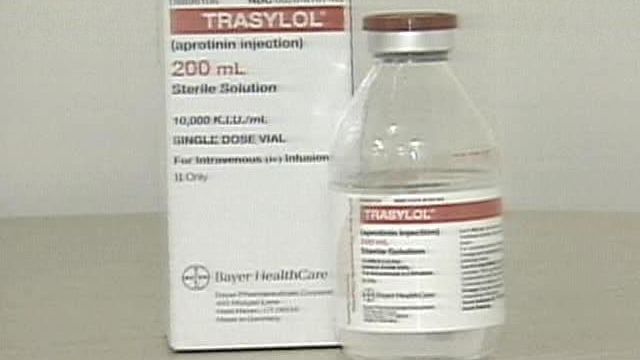Health Team
Study: Drug for Bypass Patients Could Be Deadly
A new study shows a drug often used to control bleeding in heart bypass patients might actually lead to thousands of unnecessary deaths.
Posted — UpdatedRALEIGH, N.C. — A new study shows a drug often used to control bleeding in heart bypass patients might actually lead to thousands of unnecessary deaths.
Hundreds of thousands of bypass surgeries are performed every year in the U.S., but cardiologists never call the procedure routine because too many things can go wrong. Bleeding is one of the risks associated with the surgery, so doctors use drugs like aprotinin to lessen bleeding.
But a 10-year, worldwide study of almost 4,000 coronary artery bypass graft patients shows aprotinin may lead to fatal blood clots in bypass patients. The findings of the study are published in the latest issue of the Journal of the American Medical Association.
"The major findings of the study is that aprotinin, one of three medications that we tested, was unsafe, that it was associated with increased death over five years following surgery," said Dr. Dennis Mangano with the Ischemia Research and Education Foundation.
Aprotinin was linked to a 5 percent higher death rate during that five-year period.
Mangano said bypass patients should find out if they received aprotinin. If they did, their doctors need to watch them closely for blood clots, which can lead to strokes and other health problems, he said.
If every patient who received aprotinin last year had been given another drug instead after bypass surgery, "we would have saved about 2,000 deaths per year over the next five years, or a total of 10,000 deaths," Mangano said.
• Credits
Copyright 2024 by Capitol Broadcasting Company. All rights reserved. This material may not be published, broadcast, rewritten or redistributed.





